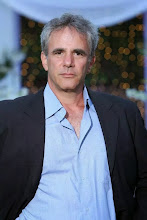Would-be Middle East expert Thomas Friedman is still lost in space. In his latest New York Times op-ed entitled "For the Mideast, It’s Still 1979," Friedman writes of Obama's nuclear deal with Iran:
"Will the nuclear deal empower the more moderate/pragmatic majority inside Iran rather than the hard-line Revolutionary Guards Corps? The reason to be worried is that the moderates don’t control Iran’s nuclear program or its military/intelligence complex; the hard-line minority does. The reason to be hopeful is the majority’s aspiration to reintegrate with the world forced the hard-liners to grudgingly accept this deal."
Well, as usual, Friedman is wrong on all counts. Although the Revolutionary Guards indeed control Iran's nuclear program, their power over Iran is far greater than that. As we are informed by The Council on Foreign Relations in a June 2013 article entitled "Iran's Revolutionary Guards" by Greg Bruno, Jayshree Bajoria, and Jonathan Masters:
"Political clout and military might are not the only attributes of today's Revolutionary Guard Corps; it is also a major financial player. The Los Angeles Times estimated in 2007 that the group, which was tasked with rebuilding the country after the Iran-Iraq War, now has ties to more than one hundred companies that control roughly $12 billion in construction and engineering capital. CFR Senior Fellow Ray Takeyh has linked the Guards to university laboratories, weapons manufacturers, and companies connected to nuclear technology. And [the Carnegie Endowment's Frederic] Wehrey writes that 'the IRGC has extended its influence into virtually every sector of the Iranian market.' The Guards-controlled engineering firm Khatam al-Anbia, for instance, has been awarded more than 750 government contracts for infrastructure, oil, and gas projects, he says."
And as stated in a July 6, 2015 Reuters article entitled "Iranian nuclear deal set to make hardline Revolutionary Guards richer" by Parisa Hafezi and Louis Charbonneau:
"Iran's elite Revolutionary Guards have done very well out of international sanctions -- and if a nuclear deal is done in Vienna this week under which those sanctions are lifted, they are likely to do better still.
The Revolutionary Guards Corps (IRGC), created by Ayatollah Ruhollah Khomeini during Iran's 1979 Islamic Revolution, is more than just a military force. It is also an industrial empire with political clout that has grown exponentially in the last decade, benefiting from the favor of former president Mahmoud Ahmadinejad, himself a former guardsman and, most recently, from the opportunities created by Western sanctions.
. . . .
"They control major companies, and businesses in Iran such as tourism, transportation, energy, construction, telecommunication and Internet,' said an Iranian official in Tehran who asked not to be named.
'Lifting sanctions will boost the economy; it will help them to gain more money.'
. . . .
'Boosting the economy will increase the IRGC's influence over politics and the economy because it will strengthen the hardline establishment,' said one Iranian oil executive."
Or simply stated, Friedman's contention that "The reason to be hopeful is the majority’s aspiration to reintegrate with the world forced the hard-liners to grudgingly accept this deal" is pure rubbish. The IRGC stands to benefit mightily by partially accepting this deal (they still do not accept inspections of "military" sites), which will enrich its coffers with tens of billions of dollars that had been impounded by sanctions and enhance its power throughout Iran.
Nice try, Tom.

No comments:
Post a Comment